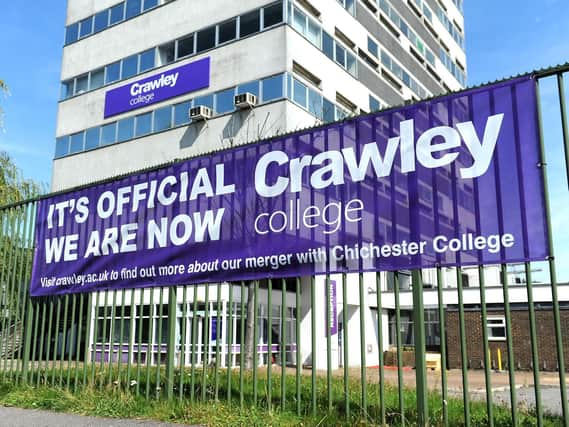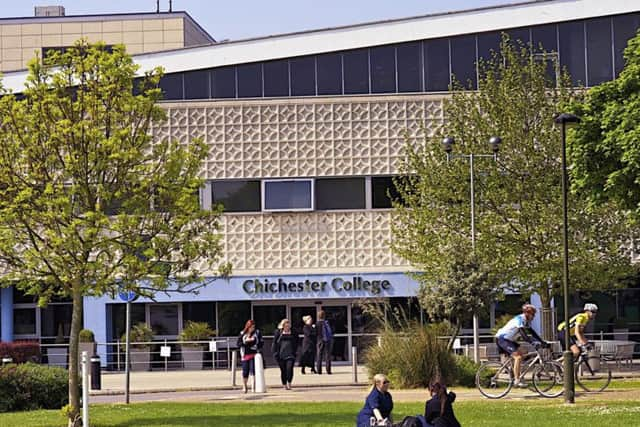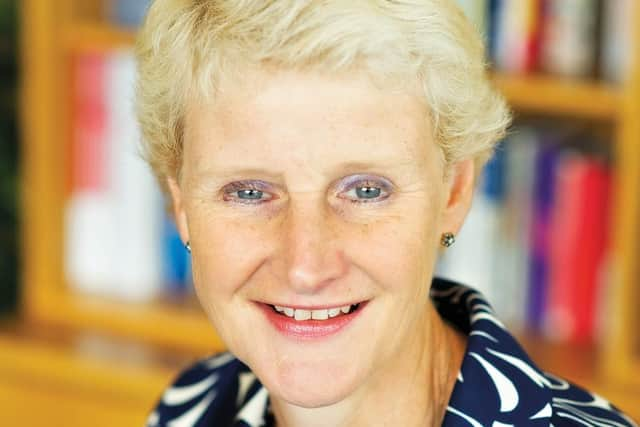Crawley College among first to deliver T-Levels


From September 2020, the Chichester College Group, including the Crawley and Chichester campuses, will offer T-Levels in software application development; design, surveying and planning; and education and child care industry.
The announcement was made by Damian Hinds, secretary of state for education, who said the introduction of T-Levels was “a once-in-a-lifetime opportunity to reform technical education in this country so we can rival the world’s best performing systems”.
Advertisement
Hide AdAdvertisement
Hide AdT-Levels are two-year technical study courses for 16-19-year-olds. On a par with A-Levels, they include a 45-day work placement to enable students to put their skills into practice.


The idea is to give students the choice between academic and technical courses once they finish their GCSEs, while ensuring they have the skills necessary to perform well in the world of work – something business leaders said had been lacking.
Courses in construction, digital and education and child care will be taught from September 2020, with a further 22 courses rolled out in stages from 2021.
They will cover sectors such as finance and accounting, engineering and manufacturing, and creative and design.
Advertisement
Hide AdAdvertisement
Hide AdThe Chichester College Group was involved in the development of T-Levels in a number of ways.


Chief executive Shelagh Legrave was involved in advisory meetings and international visits, including to Finland in 2016, looking at technical education best practice and considering how education in the UK could develop to meet the needs of employers.
John Bradbury, head of learning for construction at Chichester College, also sits on one of three panels for the construction T-levels.
Each industry panel has been involved in determining the content for T-levels, and are comprised of members from a range of employers, training providers and colleges.
Advertisement
Hide AdAdvertisement
Hide AdIn addition, the colleges hosted two ‘immersion visits’ for the Department of Education.


The visits offered civil servants the chance to meet students and staff and see how further education works in practice, experiencing first-hand what challenges were faced by colleges and students. The most recent visit took place last month.
Ms Legrave said: “Chichester College Group is delighted to be selected as an early adopter of T-Levels.
“We have been involved in the development of the new policies for some time and support the introduction of T-Levels as a genuine alternative route into work for those seeking professional and technical qualifications.”
Advertisement
Hide AdAdvertisement
Hide AdCollyer’s – The College of Richard Collyer, in Horsham – was also among the first 52, and will offer T-Levels in early years education and digital technology.


Principal Sally Bromley said: “Collyer’s had to submit a bid to the Department for Education in order to be considered to be in the first wave of colleges able to offer the new qualifications.
“I was delighted when I was told Collyer’s was successful and we had met the DfE’s stringent criteria.”
Deputy principal Steve Martell added: “I do a lot of work in local schools and listen to teachers and headteachers about what young people want, so I’m aware that the T-Levels will really suit quite a few pupils wishing to come to Collyer’s.
Advertisement
Hide AdAdvertisement
Hide Ad“We have an excellent track record in building our students’ employability skills and also work extremely closely with key regional stakeholders and employers.
“Numerous careers fairs, guest speakers, trips and our ground-breaking employability programme have received positive feedback, so it naturally follows that we are looking forward to embracing T-Levels, in addition to the bulk of Collyer’s work, which remains a traditional academic offer.”
The government described the introduction of T-Levels as the “biggest overhaul of post-school education in 70 years”.
The changes to the post-16 education were made following recommendations in 2016 from the Independent Panel on Technical Education, chaired by Lord David Sainsbury. The panel’s report described the system as “over-complex” and failing to provide the skills most needed for the 21st century.
Advertisement
Hide AdAdvertisement
Hide AdIt warned that the 13,000 qualifications available for 16-18 year olds often held little value for either individuals or employers – a fact that was not obvious until it was “too late”.
The report added: “By 2020, the UK is set to fall to 28th out of 33 OECD (Organisation for Economic Co-operation and Development) countries in terms of developing intermediate skills, and the size of the post-secondary technical education sector in England is extremely small by international standards.
“This adversely affects our productivity, where we lag behind competitors like Germany and France by as much as 36 percentage points.
“Unless we take urgent action we will be left even further behind.”
Advertisement
Hide AdAdvertisement
Hide AdResponding to the changes, Lord Sainsbury said: “I am delighted with the excellent progress being made with the implementation of T-Levels.
“For too long the only educational opportunity that many young people have had is to take technical qualifications that fail to equip them with the knowledge and skills that employers value, and that are needed to progress to higher technical education.
“We now face a major communication challenge, and all of us, who understand how valuable and important these reforms will be to the lives of young people, must now reach out to young people, their parents and carers, and employers, to let them know these changes are coming, and the exciting opportunities they will bring.”
Jeremy Taylor, chief executive of Gatwick Diamond Business, said: "There is a cautious welcome to T Levels as they should go some way towards addressing vocational needs of employers as well as give good alternative routes into employment for young people.
Advertisement
Hide AdAdvertisement
Hide Ad"However, as with many well-intentioned government initiatives, I’m not convinced this one has been properly thought through or communicated as there may - or many not - be a significant role for employers in the programme.
"I trust that the pilot properly informs the roll out of the programme so that it works for students, schools and colleges and employers."
Prime Minister Theresa May said: “Everyone should be able to have access to an education that suits them, but we know that for those that don’t choose to go to university, the routes into further technical and vocational training can be hard to navigate.
“That’s why we’re making the most significant reform to advanced technical education in 70 years to ensure young people have gold standard qualifications open to them whichever route they choose.
Advertisement
Hide AdAdvertisement
Hide Ad“T-Levels provide a high-quality, technical alternative to A-Levels, ensuring thousands of people across the country have the skills we need to compete globally – a vital part of our modern industrial strategy.”